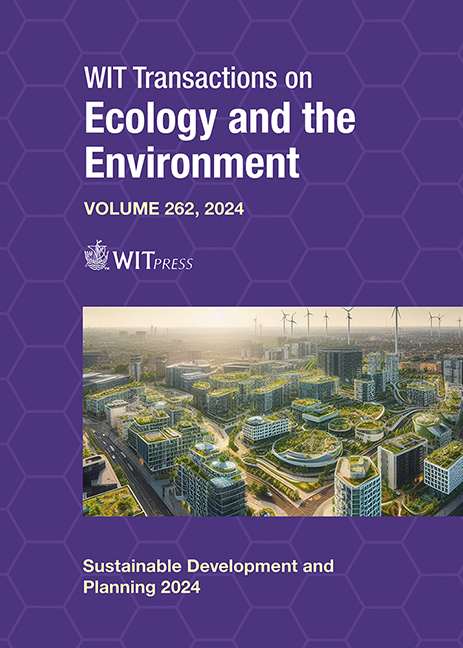PUTTING URBAN POVERTY BACK ON THE URBAN POLICY AGENDA: UPGRADING AN UNPLANNED SETTLEMENT IN BEIRA, MOZAMBIQUE
Price
Free (open access)
Transaction
Volume
262
Pages
12
Page Range
393 - 404
Published
2024
Paper DOI
10.2495/SDP240331
Copyright
Author(s)
CORRADO DIAMANTINI, SUSANNA OTTAVIANI, LIVIA SERRAO, ALFREDO MANHOTA ANTONIO, AMERIGO DE STELA VLADIMIR MSOPELA, HAROLD JUVENAL CHATE, GUIDO ZOLEZZI
Abstract
In many sub-Saharan African cities, the widespread presence of unplanned areas inhabited by the poor is increasingly being addressed through urban renewal policies, with the consequent demolition and forced eviction of residents, while the creation of new neighbourhoods if not new cities, which are unaffordable for the poor, again leaves the solution to their housing needs to spontaneous processes. Both approaches undermine any prospect of sustainable urban development. The alternative of in-situ upgrading of the settlements of the urban poor, which has emerged at times in recent decades, mainly supported by international agencies and civil society organisations, seems to be increasingly relegated to the actions of the latter and to sporadic forms of bottom-up action. There is a risk that this alternative, i.e. improving the places where people have chosen to live, will disappear from many urban agendas, partly due to administrative neglect if not political will, and partly due to the difficulties this intervention has encountered over time. However, this picture is not homogeneous and varies considerably from city to city. This is why it is important to take into consideration contextual conditions, related to planning practices, to find an alternative way of acting with the aim of recombining the two divergent trajectories of urban development in sub-Saharan Africa. In the case presented in this paper, the upgrading of the unplanned settlement of Macuti in the city of Beira, Mozambique, the following contextual conditions were considered in the design process: (i) the regulatory framework; (ii) the urban planning instruments within the policy of the municipality; (iii) the residents’ expectations of the unplanned settlement; and (iv) the spatial characteristics of the unplanned settlement. These conditions are analysed and discussed, outlining how they interacted with the design choices that in turn met the expectations of both the municipality and the inhabitants.
Keywords
unplanned settlement, urban policy, upgrading project, Beira, Mozambique





